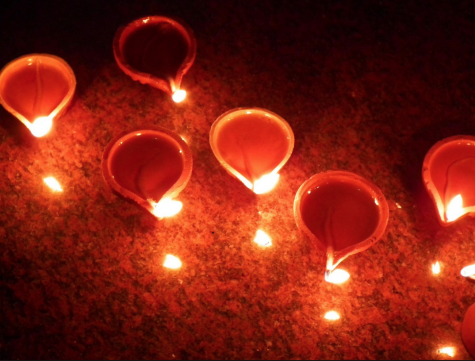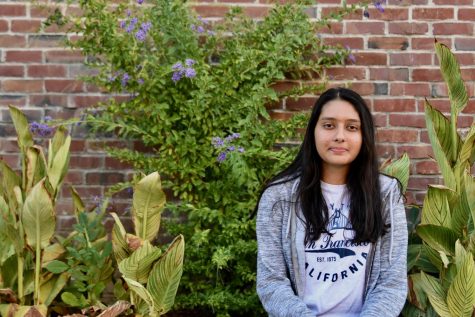Whitewashed
Exploring my connection to Indian culture
March 4, 2019
When I was a little girl, my mom loved dressing my sister and I in Indian clothes. She adorned us in colorful outfits with thousands of tiny sequins and beads sewn on, sliding tinkling bangles up our wrists and fixing glittery clips in our hair. Then, we would twirl around, as if we were little princesses.
I find that hard to believe now. I haven’t worn Indian clothing in nearly seven years. When I tell people that, they automatically assume it’s because I’m uncultured, or not connected to my roots. But the real reason? Indian clothes are itchy and uncomfortable and I really prefer sweatshirts and jeans.
I guess there are plenty of reasons to label me “uncultured.” I don’t watch Bollywood movies, I don’t know any Indian celebrities and I don’t listen to Bollywood music. When my Indian friends discuss Bollywood celebrities or the latest movie, I usually tune out of the conversation. Even though there are certain aspects of Indian culture I’m not connected to, I didn’t consider myself uncultured. At least not until I was labelled as “whitewashed” in eighth grade.
I still vividly remember the conversation. My family was going to a Diwali party at a family friend’s house. We walked up their driveway and rang the doorbell, my mom carrying the curry she had made. As soon as the door opened, I could tell it was an Indian party. Bollywood music played in the background and the smell of Indian restaurant food permeated the air. Every single person, with the exception of my sister and I, was wearing Indian clothing. As my parents greeted their friends, followed by the usual exclamations of “What took you guys so long?” and “It’s been too long,” my sister and I escaped up the stairs and found the room where the rest of the kids were gathered. I noticed that every single one of them was wearing Indian clothes.

They quickly expanded the circle and restarted their game of Life so we could join. When it was my turn, I spun the spinner, then started moving my little plastic car down the path. Then, one girl voiced the question I’m sure they all wanted to ask.
“How come you guys aren’t wearing Indian clothes? I mean, it is a Diwali party.”
I shrugged casually and told them that I didn’t really own any because I had stopped wearing them years ago.
“It’s because they’re whitewashed,” one of the older highschool girls said authoritatively. The rest nodded and went back to the game of Life, giggling when the next boy landed on “get married.”
As I counted my paper money and moved the plastic car across the game board, the girl’s word burned in the back of my mind. Whitewashed. Later that night, everyone formed a ring in the backyard. In the middle, one of the dads set up a firecracker, lit it and ran to the side as it exploded into light and sound. The rest of the people whooped and clapped, but I was still thinking about the girl’s words. As I watched the last firecracker burn out, leaving the backyard in an exhausted darkness, I arrived at a conclusion: I was whitewashed.
For the longest time after that party, I saw myself as whitewashed and uncultured. I felt like I was a fake Indian, who only half-belonged to the culture.
Then, sophomore year I became friends with another Indian girl who didn’t wear Indian clothes, watch Bollywood movies or really care about Indian celebrities all that much — yet she still claimed that India was “her country.” That was when I realized that just because I’m not connected to India in the same ways as other people are, it doesn’t mean that I’m uncultured or “whitewashed.”
There are plenty of ways I am connected to India. I have an understanding of Hinduism and Indian cultural practices. I’m close to my grandparents and can maintain a mostly fluent conversation in Hindi. I am generally aware of political developments and current events in India.
I understand now that I’m not uncultured just because I think Indian clothes are too extravagant and itchy for me, or because I don’t like Bollywood culture. And someone can’t label me as “whitewashed” just because I’m not connected to India in the same ways that they are. I understand now that I can not care about some parts of Indian culture, but still belong to the country.

















